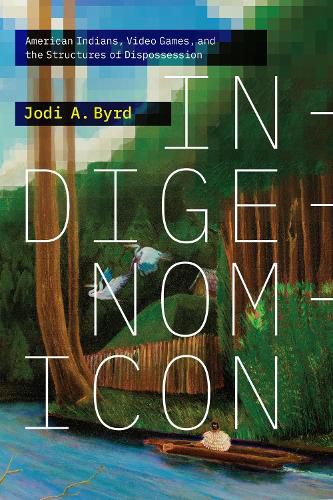Readings Newsletter
Become a Readings Member to make your shopping experience even easier.
Sign in or sign up for free!
You’re not far away from qualifying for FREE standard shipping within Australia
You’ve qualified for FREE standard shipping within Australia
The cart is loading…






Settler colonial studies and Indigenous studies are often assumed to be the same intellectual project. In Indigenomicon, Jodi A. Byrd examines the differences between the two fields by bringing video game studies and Indigenous studies into conversation with Black studies, queer studies, and Indigenous feminist critique. Byrd theorizes "the image of the law of the Indigenous" as structuring dispossession in games including Assassin's Creed, Animal Crossing, BioShock Infinite, and Demon Souls. They demonstrate how games and play might reveal histories of slavery, genocide, and theft of Indigenous lands even as their structures obscure Indigenous spatial and embodied practices that prioritize relationships with land, water, plants, and spirits. With ground and relationality defined as key concepts, Byrd centers Indigenous visions of dystopias to reveal how game spaces encode settler structures of governance even as the design of games might yet provide vital modes of resistance to Indigenous erasure.
$9.00 standard shipping within Australia
FREE standard shipping within Australia for orders over $100.00
Express & International shipping calculated at checkout
Settler colonial studies and Indigenous studies are often assumed to be the same intellectual project. In Indigenomicon, Jodi A. Byrd examines the differences between the two fields by bringing video game studies and Indigenous studies into conversation with Black studies, queer studies, and Indigenous feminist critique. Byrd theorizes "the image of the law of the Indigenous" as structuring dispossession in games including Assassin's Creed, Animal Crossing, BioShock Infinite, and Demon Souls. They demonstrate how games and play might reveal histories of slavery, genocide, and theft of Indigenous lands even as their structures obscure Indigenous spatial and embodied practices that prioritize relationships with land, water, plants, and spirits. With ground and relationality defined as key concepts, Byrd centers Indigenous visions of dystopias to reveal how game spaces encode settler structures of governance even as the design of games might yet provide vital modes of resistance to Indigenous erasure.